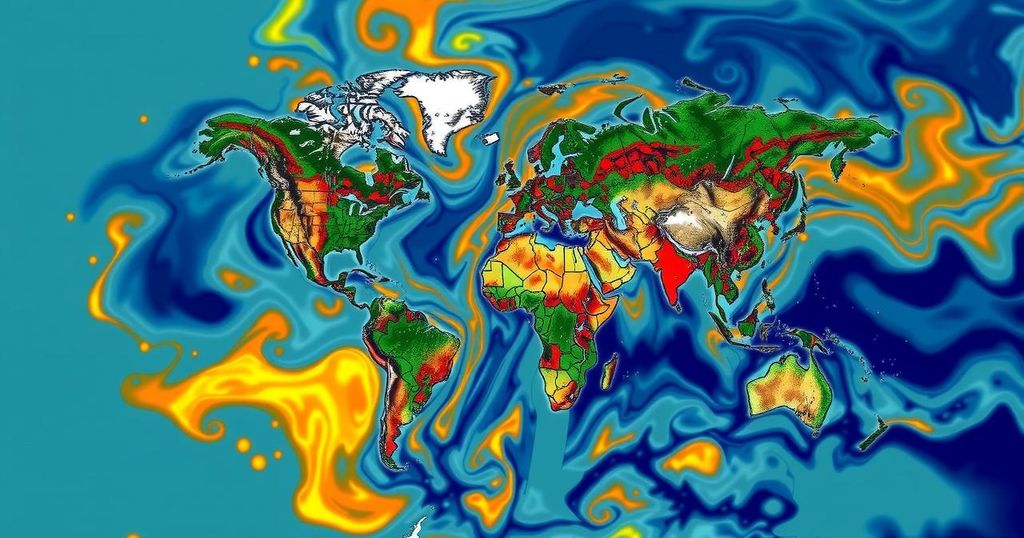The week of October 14-18, 2024, brought significant climate news, including a stark report stating only 2.8% of the world’s oceans are effectively protected, political barriers to disaster aid revealed, severe flooding in Nepal attributed to climate change, Google’s investment in nuclear energy for data centers, emotional pleas from meteorologists concerning climate inaction, and a survey highlighting climate anxiety among U.S. youth.
This weekly update highlights significant climate developments from October 14-18, 2024, revealing alarming statistics on ocean conservation and a troubling analysis linking climate change to severe floods in Nepal. 1. A recent report has disclosed that a mere 2.8% of the world’s oceans is considered to be “effectively” protected, despite a global commitment in December 2022 by over 190 nations to enhance ocean preservation by 2030. Under the Kunming-Montreal Global Biodiversity Framework, a collective goal was set to conserve at least 30% of terrestrial and marine areas by the end of the decade. Current data indicates that only 8% of the ocean is designated as Marine Protected Areas (~MPAs~), far from meeting this target, prompting urgent calls for action ahead of the upcoming UN Biodiversity Conference. 2. Political dynamics in disaster aid have surfaced, as former Trump officials revealed that disaster assistance requests from predominantly Democratic states were initially denied. Mark Harvey, Trump’s former senior director for resilience policy, noted that aid was only granted following the recognition of Republican support in the affected regions. This politicization of disaster response has raised concerns about future government assistance following natural disasters. 3. An analysis has established that human-induced climate change has significantly influenced the recent severe weather events in Nepal, where devastating floods killed 244 individuals. Researchers concluded that the likelihood of such intense rainfall is about 70% higher in the current climate, which has warmed by 1.3°C since pre-industrial times. Rainfall during this event was further intensified by approximately 10% due to climate change. 4. In a notable development for corporate climate action, Google has announced its partnership with Kairos Power for the construction of small modular nuclear reactors to meet the energy demands of its data centers. This initiative is expected to generate up to 500 MW of carbon-free energy by 2035, marking a significant shift for a tech company in the realm of renewable energy sourcing. 5. U.S. meteorologist John Morales publicly expressed despair over the insufficient action taken against climate change during a live broadcast addressing Hurricane Milton’s rapid intensification. He emphasized the lack of progress in combating climate change despite decades of advocacy, stating, “Nothing—or very little, has been done to mitigate what’s causing global warming, and therefore, here we are.” 6. A survey by The Lancet Planetary Health revealed widespread climate anxiety among U.S. youth, with 85% of respondents expressing moderate to extreme concern regarding climate change impacts. The study indicated a high level of distress across political affiliations, underscoring the urgency of addressing climate-related issues among younger demographics.
Climate change remains a pivotal global challenge, influencing environmental conditions and posing risks to biodiversity, human health, and economic stability. Recent developments, such as the assessment of conservation efforts, highlight the gap between international commitments and actual protections. This week’s news shows how climate impacts are increasingly being felt across various sectors, including natural disasters and mental health, emphasizing the need for immediate action and response.
This week’s climate news illustrates a pressing call to action from various fronts, from the alarming state of ocean conservation to the profound impacts of climate change on communities. The illuminating statistics and personal testimonials signal an urgent need for coordinated efforts to address the ongoing climate crisis and the distress it is causing across demographics.
Original Source: earth.org






